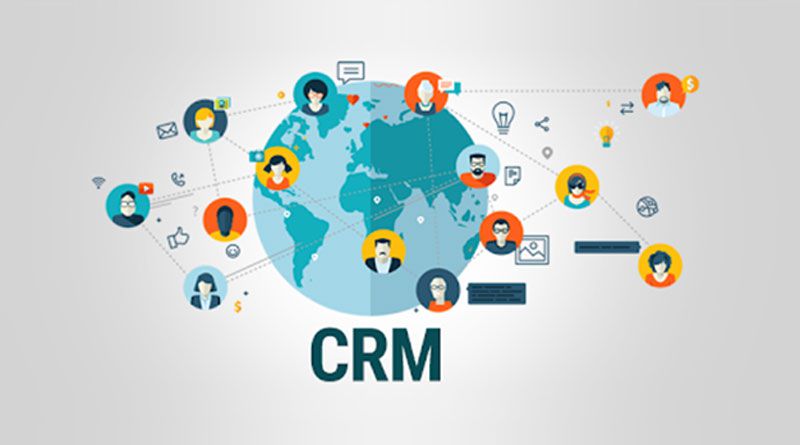High end technological advances in IT generated graphical programming platforms, a breakthrough that has completely thrown hand coding back to the dust. This new platform makes it easier for non-technical developers to build applications by means of visual interface. These are referred to as low-code development platforms. This level of tech has seen a drastic increase in the number of tech businesses converting to low-code. The transformation is however bearing more fruits making low-code a solution to the many market challenges.
Revenue being key business output, many entrepreneurs are in the market in search of best customer relationship management – CRM software, for improvement of customer interactions and finally sales. However, the investment and return on investment are key factors companies must consider before settling on any low-code platform such as CRM.
Manual coding of applications in the traditional app development platforms was tiresome, investment intensive, and demanding in terms of man hours. Low-code comes in to reduce the app development time by more than half. It also reduces need for IT skills and as a means to build better apps for the workspace, they permit development of applications that make business processes easier and address several company data and process needs.
A product of lowcode, CRMs leverage businesses in a number of ways. They provide platforms through which companies collect, organize, analyze, report and store customer data. This system also monitors customer interactions and makes the information available for sharing between groups.
Advantages of CRM
As a customer oriented software, CRM brings a bunch of advantages to your company. A number of these are available on Creatio. Four of these are discussed below.
1. Data is centralized and daily costs reduced
With CRM, storing sales information collected over a period of time is made easy. Being able to retrieve all customer information covering a range of periods and several customer interactions is a business dream that CRM answers more seamlessly. Sales reps do not therefore spend long hours looking for sales information as this is easily obtained from the CRM reports dashboard.
2. Automated entry and remote access of data
CRM collects and aggregates all customer contacts, emails, meeting details, calls, and relevant employee interactions with customers automatically. The low code platform also automates processes such as summation, weighing and visualization with high end efficiency.
CRM cloud storage can be accessed remotely from anywhere, especially with the availability of 4G connectivity. This means that sales people can work longer hours in the field, submit data remotely and managers can access and monitor customer interactions and other activities from the office and outside the office.
3. Customers are segmented
Sorting customers or prospects based on their interactions with the business or based on past purchases makes it easier for the business team to customize and send more relevant communications to a group of customers with related needs. This makes employee-customer interactions more efficient and employees can spend much of their time handling other business processes, making them more productive.
4. Creates sales reports
Sales reports are integral parts of any business outlining performance, productivity and growth forecasts. CRM features such as reports collects and organizes data about sales and deals, and displays them on the sales dashboard. Managers can then use these reports to monitor position of deals, identify employees who are meeting targets as well as monitor the level of revenue generated.
Disadvantages of CRM
Companies must well understand what is CRM before venturing in the low code platform. This is because it is not all glory to businesses that use it. The following are some of the disadvantages that the industry may experience as a result of integrating CRM.
1. Training
This may not be a big issue with small businesses. However, large companies will need to roll out induction sessions for all department teams. These training sessions will always eat into the company’s productive hours and revenue as the training has to be done by a professional. Additionally, the different CRM software features for managers and executives may mean additional training sessions for the different teams. This may take a few hours or even a number of days, eating substantively into the company’s productive hours.
2. Security
CRM is a secure business tool and may not be exposed to big security issues. However, as a central data store, companies are exposed to data protection issues. Unhappy employees can also add unauthentic data to the system. This calls for data encryption, backup and supervision to safeguard CRM data integrity.
3. Access by third party
This is another level of insecurity companies are exposed to especially when they engage external parties to run and maintain their IT platforms. For instance, a web hosting company may grab CRM data, sell or share it with another organization, and compromise its integrity as well as security of the customers. Due diligence must therefore be every company’s priority to ensure that data will not be exposed to the wrong person.

Namaste UI collaborates closely with clients to develop tailored guest posting strategies that align with their unique goals and target audiences. Their commitment to delivering high-quality, niche-specific content ensures that each guest post not only meets but exceeds the expectations of both clients and the hosting platforms. Connect with us on social media for the latest updates on guest posting trends, outreach strategies, and digital marketing tips. For any types of guest posting services, contact us on info[at]namasteui.com.

